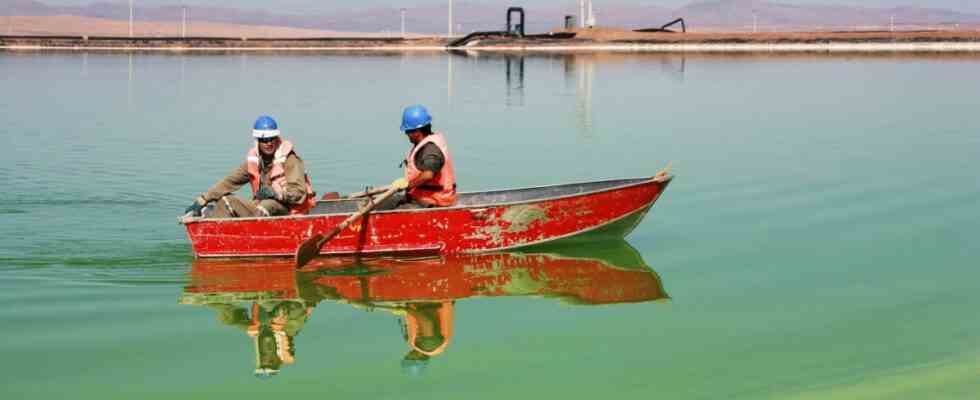It’s a stalemate, and the EU Commission wants to prevent something like this from happening again with its proposals on Wednesday: The Brussels authorities agreed on a trade agreement with the South American economic block Mercosur in 2019, a slim 19 years after the start of the talks. But the EU Parliament and some member states have not yet accepted the agreement with Brazil, Argentina, Uruguay and Paraguay.
The reason given is that Brazil’s President Jair Bolsonaro is not doing enough to stop the Amazon forest being cleared by fire. Critics fear the treaty, which eliminates tariffs and simplifies exports, will exacerbate this problem. At the same time, the opponents of the agreement complain that the chapter on environmental and social standards is too lax and that there are no threats of harsh sanctions such as the reintroduction of tariffs in the event of violations. The Commission now wants to take the wind out of the sails of such criticism: Commission Vice President Valdis Dombrovskis explained on Wednesdayhow his agency intends to make these chapters more enforceable.
Accordingly, in current and future negotiations, the Commission will insist that the treaties provide for the reintroduction of tariffs as a final step in the event of serious violations of climate protection and social requirements. This should force a turn. It will continue to be the case that in the event of a dispute, an arbitration procedure will begin first, in which a panel of experts will decide whether and how governments must change their behavior. The tightening consists in the fact that the EU can reverse tariff advantages in the future if a partner country ignores this judgment and thus the requirements of the Paris climate protection agreement or Principles of the International Labor Organization (ILO) are broken. It’s about the ban on child and forced labor and trade union rights.
The Council of Ministers and the EU Parliament still have to agree to the planned change in the design of trade agreements, but that shouldn’t be a hurdle. Dombrovskis said EU agreements already support sustainable development, but “we want to make them an even bigger driver of positive change”. A Commission official emphasized that the current system without the possibility of punitive tariffs works well in the authority’s view, but the Commission wanted to address the concerns of politicians and civil society against trade agreements. Hopefully this will give new impetus to the agreements.
“A revolution in the system”
Anna Cavazzini, spokeswoman for trade policy for the Greens in the European Parliament, welcomes the move: “After years of pressure from us Greens and civil society, the Commission is finally delivering.” The SPD MEP Bernd Lange, chairman of the trade committee, calls the initiative “a revolution in the system”.
Should the stricter rules really reduce the resistance in some member states to certain trade agreements, that would come in handy for 15 EU governments. This group has now sent a letter to Dombrovskis, who warns that more and more deals should be made more quickly so as not to be left behind in global competition with countries like Japan. One signatory is Economics Minister Robert Habeck of the Greens. The letter calls for the acceptance and implementation of agreements with Mexico and Chile that have already been negotiated in addition to the Mercosur agreement, naturally taking environmental and social standards into account. In addition, Dombrovskis should please “accelerate the negotiations with partners such as New Zealand, Australia, India and Indonesia”. India and the EU agreed just last week to restart dead-end talks. The new, tougher clauses on climate and social issues would then take effect here.

